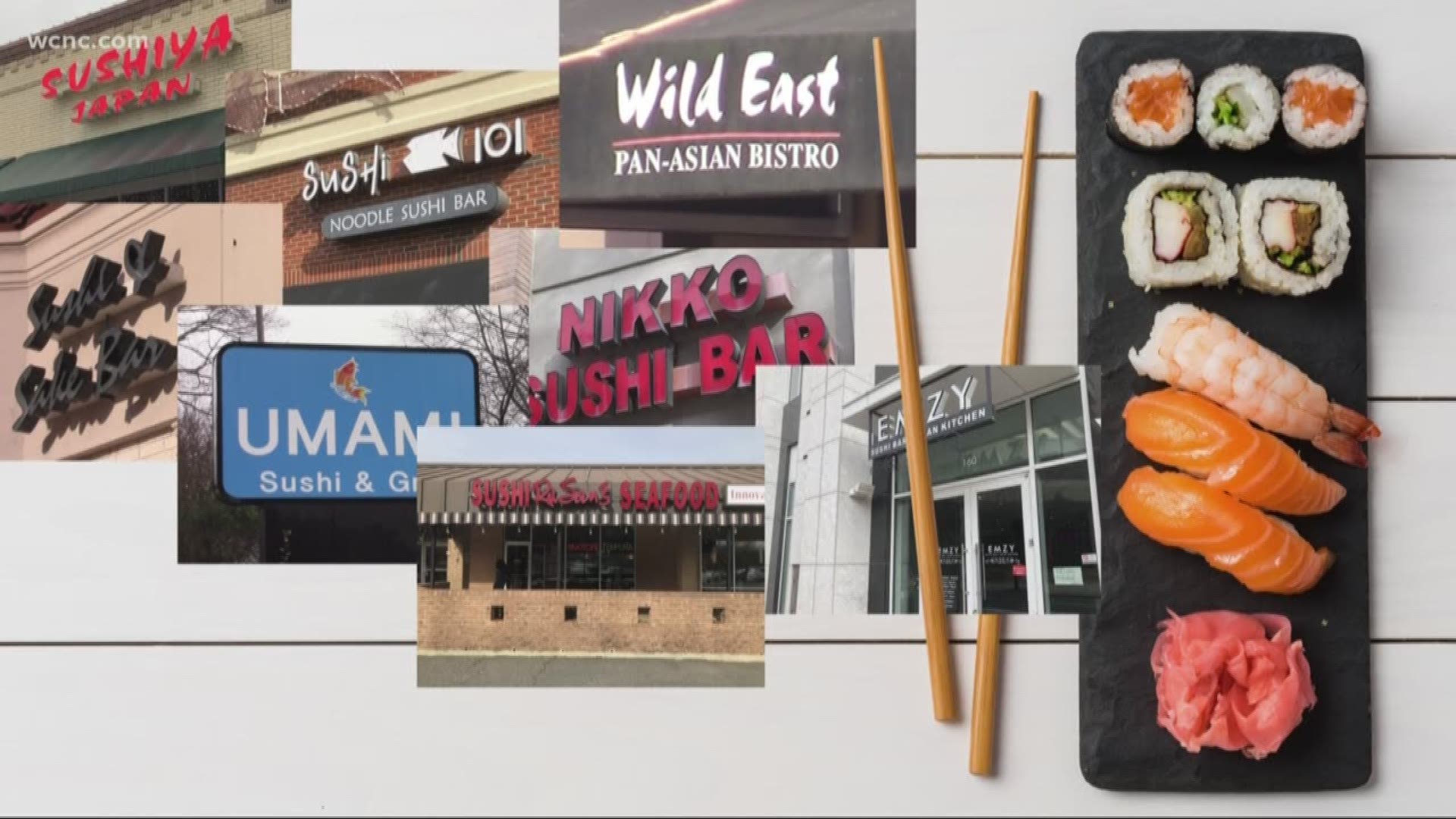CHARLOTTE, N.C. — Every week NBC Charlotte is committed to bringing you the low scores of Charlotte restaurants after their health inspections.
We’ve uncovered some gnarly stuff, everything from live roaches to blood splatter.
This special restaurant report card is focused on sushi restaurants.
NBC Charlotte discovered Emzy, a Charlotte sushi restaurant in uptown, was substituting a low-grade fish called escolar for white tuna. When you buy sushi, or any kind of fish for that matter, you want what you order and by law, that’s what you are supposed to get.
Consumer Investigative Reporter Bill McGinty randomly selected eight sushi places, bought items containing various tuna, and lab-tested the fish. We wanted to make sure they are selling what they are advertising and you're getting what you pay for.
We noticed that the Emzy sushi bar in Uptown, was dinged in their November 7, 2018 inspection for advertising white tuna in a menu item, but instead of tuna, the inspector says the dish actually contained “escolar”. That’s a snake mackerel that can give you bad intestinal distress.
A study by Oceana, a group that protects the oceans, noted that the Food and Drug Administration (FDA) advises against the sale of Escolar, but the inspection report said Emzy was selling it anyway. It's not against the law to sell it.
So we went in and bought the very same menu item at Emzy -- the sexy salmon roll.
We also collected similar items from other sushi restaurants. We kept good records, labeled everything, and shipped it to Florida for specialized DNA testing.
We did this because the seafood industry was caught in a net of fraud after a study by Oceana. Their national study in 21 states found that 74 percent of the time, sushi venues were mislabeling fish. Restaurants did it 38 percent of the time, and grocery stores were guilty of it 18 percent of the time. Basically, you were paying for one thing, but getting another.
We shipped the sushi on ice overnight to Applied Food technologies in Alachua, Florida.
Technicians spent a week testing the DNA of what we sent them. The first five samples, including the one from Emzy, came back with the DNA confirming the fish was what they were advertising.
Our three other samples couldn’t be identified because the sauces on them interfered with the test and results were inconclusive. That doesn’t mean they did anything wrong.
The sushi industry is Goliath; it did $2.3 billion in revenue in 2016. Our test results are good news; experts said it means the seafood industry is policing itself after that earlier study, and for you, it means you are getting what you pay for when you buy it.
Food, sushi or not, has to be honestly presented; that’s the law in most places. If something is going to be substituted, they have to tell you or disclose it on the menu, so read the fine print.
The general manager of Emzy told us they have changed their menu to say they are now selling escolar.

